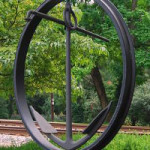Rain Gardens Aid Louisville Waste Management
 Water has one consistent property that can cause problems. Water flows! This may seem pretty obvious, but many people may not realize the implications of this one property. Excessive water runoff can severely damage water sources. According to the Louisville Metropolitan Sewer District, rain gardens can aid waste management efforts.
Water has one consistent property that can cause problems. Water flows! This may seem pretty obvious, but many people may not realize the implications of this one property. Excessive water runoff can severely damage water sources. According to the Louisville Metropolitan Sewer District, rain gardens can aid waste management efforts.
How can a rain garden protect local waterways?
When there is excessive water runoff resulting from heavy rains and storms, this water absorbs chemicals, wastes, and toxic substances from the environment. When storm drains flood, this harmful water reaches local streams and waterways. Thus the local water, plant life and animals are all affected.
Rain gardens are designed to collect rainwater from the roof. Drainage lines are redirected from the normal channel into a nearby garden. The redirected flow is absorbed by plants and infiltrates into the ground. Water runoff from roofs diverted into Rain Gardens and Rain Barrels prevents storm water and pollutants from reaching storm drains, and eventually our streams and rivers.
What should I put in my rain garden?
Local plants work best! Native plants are the foundation for all levels of life and increase the ecological value of all landscapes. Native plants have deep roots and once established, require little maintenance. They have the ability to withstand extremes in weather and long periods of drought.
Native plants in Kentucky
- Trees/Shrubs: Silky Dogwood, Winterberry, Elderberry, Coralberry
- Ferns: Lady Fern, Royal Fern, Cinnamon Fern, Christmas Fern
- Wildflowers: Goldenrod (Kentucky’s State Flower), Wild Ginger, Jacob’s ladder, Butterfly Milkweed, Giant Sunflower, Southern Blazing Star
These are only a few of the many native plants to the Louisville area. A more complete list is available.
Written by Bob Jones







Leave a Reply
Want to join the discussion?Feel free to contribute!